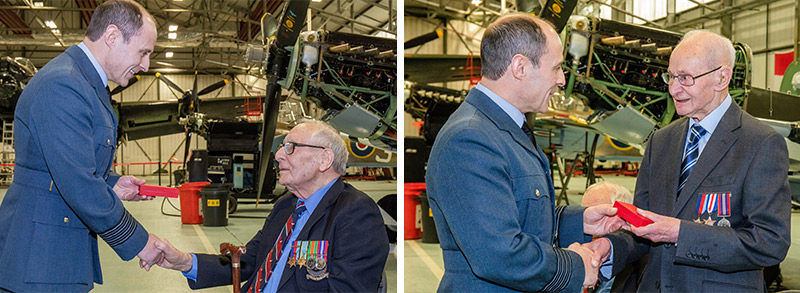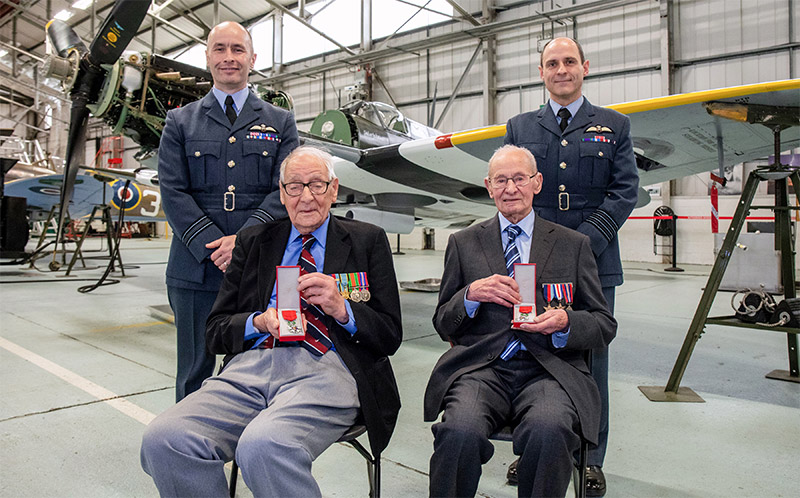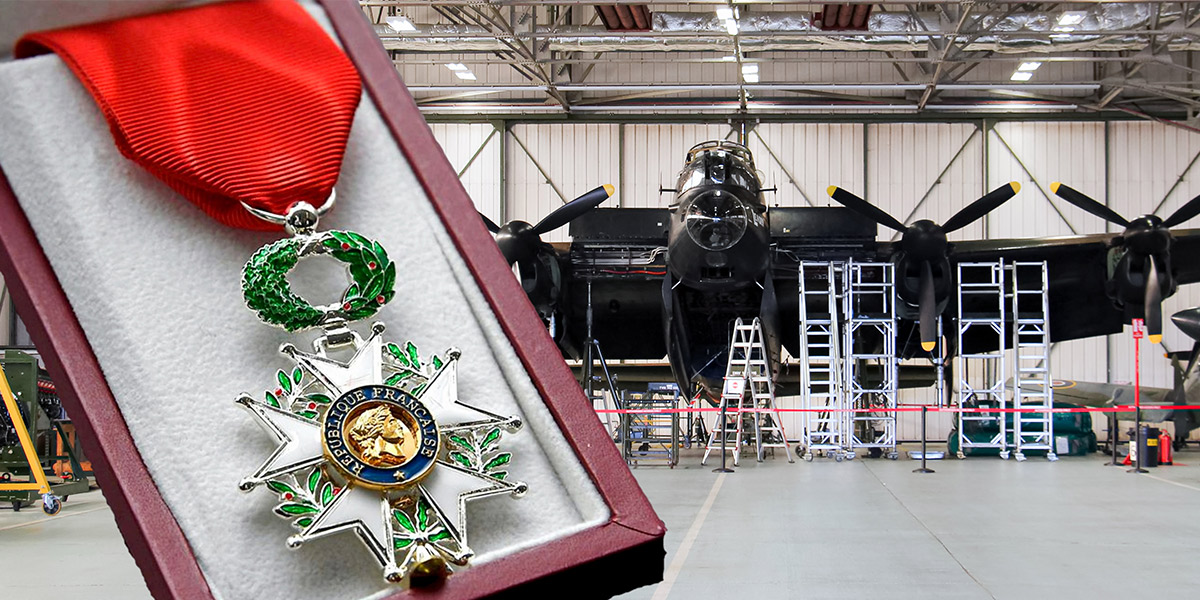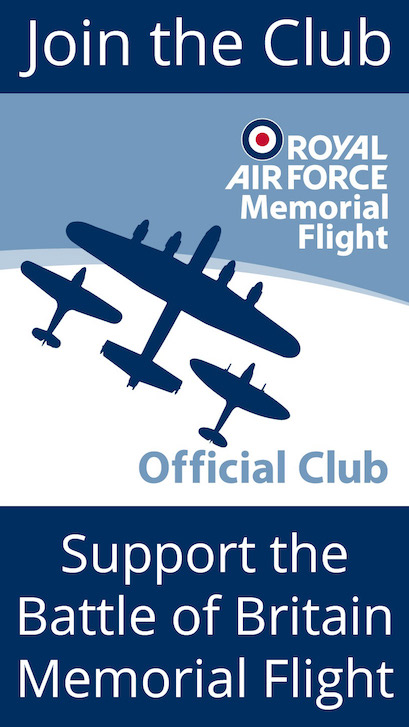Veterans presented with Legion d’Honneur at the BBMF
Header image: The Legion d’Honneur medal with the BBMF Lancaster in the background.
On Friday 24th January 2020, two Second World War veterans were presented with the Legion d'Honneur in the BBMF hangar at RAF Coningsby.
In 2014, at the time of the 70th anniversary of D-Day, the Government of France announced that it wished to recognise the selfless acts of heroism and determination displayed by all surviving veterans of the Normandy landings by appointing them Chevaliers of the Legion d'Honneur. This recognition extended beyond those who actually landed on the invasion beaches on D-Day, to include Royal Navy and Royal Air Force personnel who operated in support of the landings and those involved in the wider campaigns to liberate France in 1944. As the Legion d’Honneur cannot be awarded posthumously, recipients must be living when the honour is approved.
The RAF Coningsby Station Commander and BBMF fighter pilot, Group Captain Mark Flewin CBE, presented Legion d’Honneur medals to Bertram “Bert” Hammond and Henry “Harry” Archer, both World War Two veterans now in their mid-90s. The Group Captain said: “Hearing the stories of these brave men brings to life what they did… We are privileged to have them here today and to be able to witness this recognition of their service.”

Right: Signalman Harry Archer receives his Legion d’Honneur from Gp Capt Flewin.
(Photos: RAF Coningsby Photo Section Crown Copyright)
Bert Hammond was a mid-upper gunner in a 514 Squadron Lancaster crew. He completed a full tour of over 30 bomber operations, the first three in the week leading up to D-Day. On D-Day itself, Bert and his crew took part in raids targeting enemy troops in Normandy; the crew actually flew five ‘ops’ over Normandy in eight days, in support of the invasion. 514 Squadron was based at RAF Waterbeach in Cambridgeshire, and Bert flew the majority of his ‘ops’ in Avro Lancaster BIIs powered by four Bristol Hercules radial engines. Bert’s Lancaster was “O-Oscar” and, unusually, had a ventral Browning 0.303” machine gun fitted. Bert is now the sole surviving member of his crew, but he was keen to point out that his crew were closer than brothers and he wanted to acknowledge them all, saying, “My crew members are here with me today in my heart.” Bert left the RAF in 1947 as a Warrant Officer.

Army Signaller/Driver Harry Archer trained for D-Day on the West Coast of Scotland, practising driving off landing craft into surf on terrain similar to that on the Normandy coast. On D-Day+ 2 he drove his truck off a landing craft into the surf and onto ‘Gold Beach’ to set up his signal post in a large bomb crater on the ridge overlooking the beach. Harry established communications between our forward troops and the bridgehead and finally connected up the underwater cable which linked the Allied troops directly to England by telephone. Once Caen had been taken, he moved off behind the front-line troops, keeping communications open between the forward HQs, the beachhead and back to England.
The BBMF is extremely proud to have played a small part in honouring the veterans.







